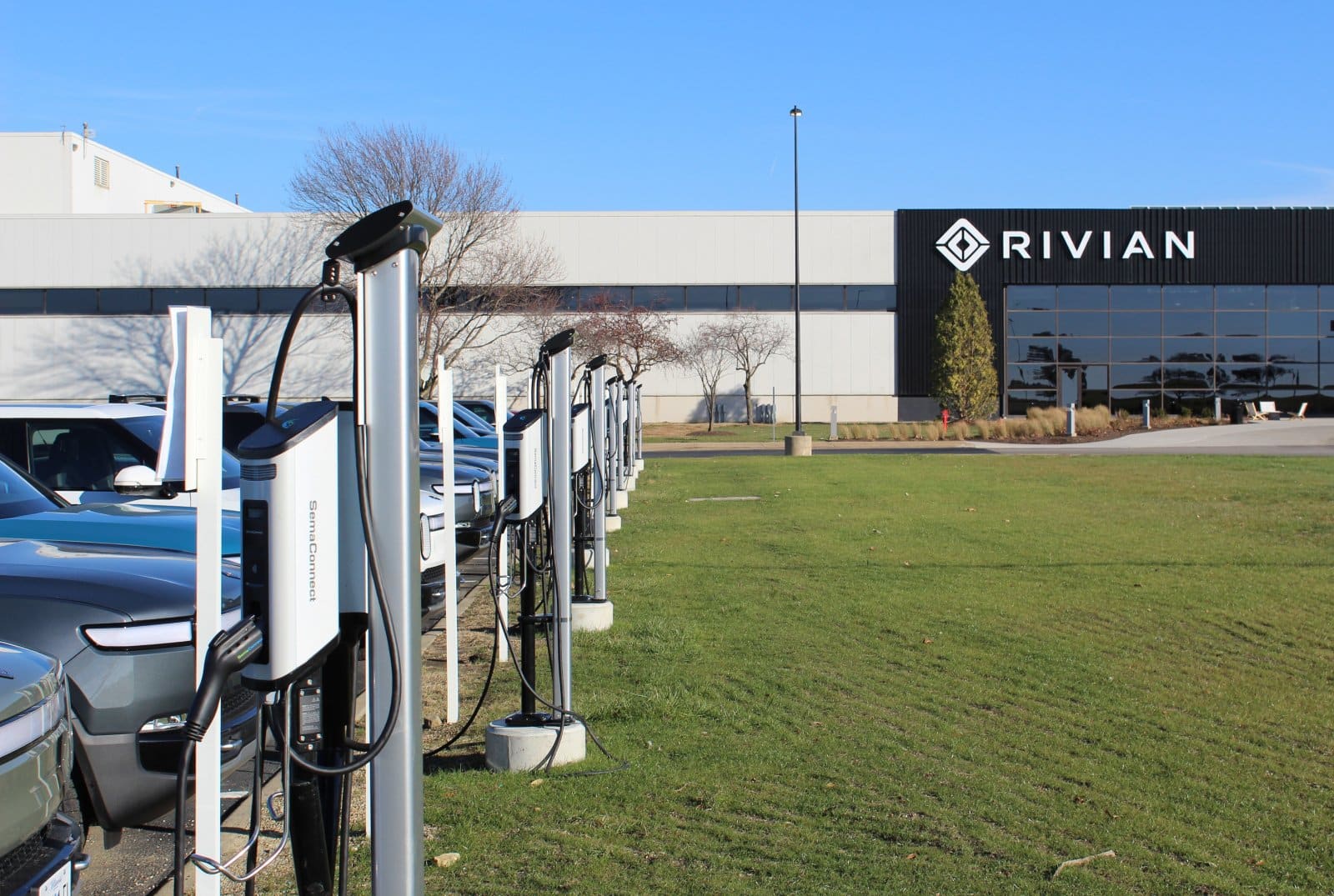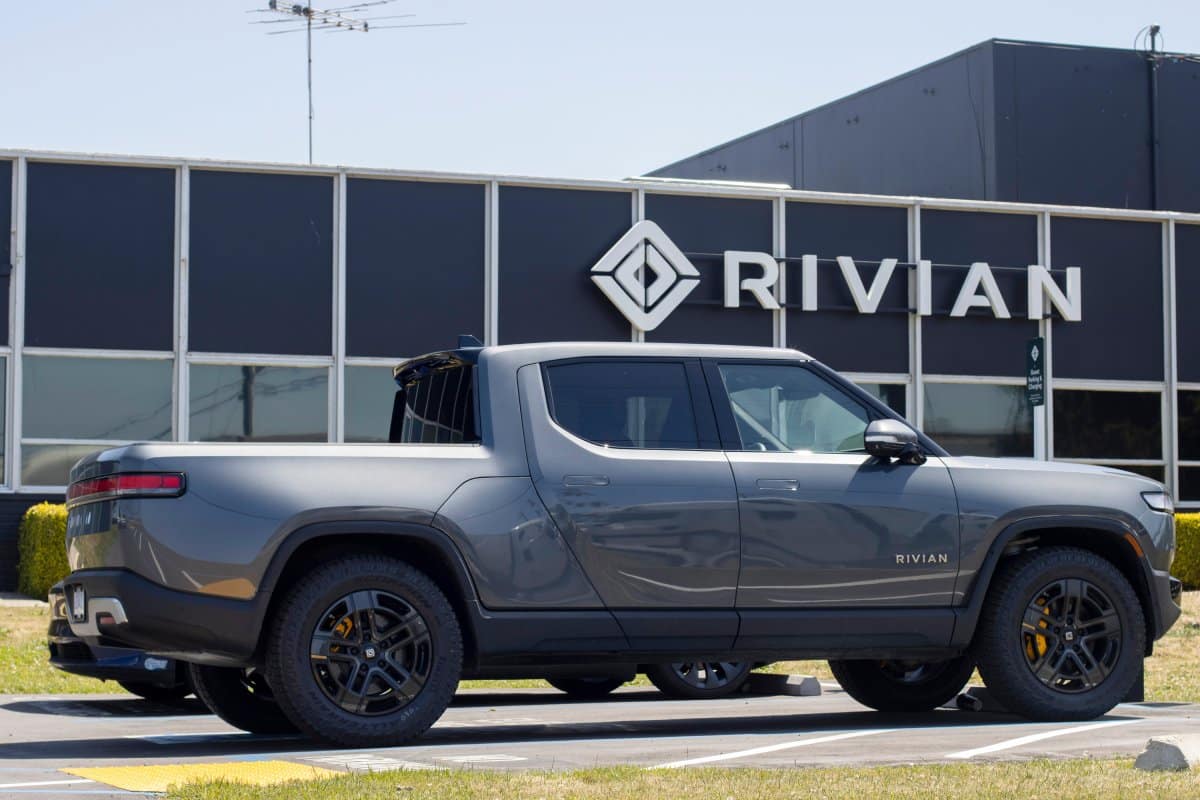Tesla rival Rivian has just revealed a billion-dollar partnership that could change up the EV market for good. Here are the details.
VW’s Massive Investment in Rivian

Volkswagen (VW) has just announced a huge $5 billion investment in electric vehicle (EV) company Rivian. The deal has already sent Rivian’s stock soaring by over 50%, and is a much needed lifeline for the struggling EV maker – whose shares have dropped by 49% this year alone.
The Strategy Behind the Partnership

But what’s the reason behind this partnership? Essentially, it’s about surviving in an increasingly tough EV market.
Volkswagen’s EV Challenges

Volkswagen – despite its history – has struggled to find its footing when it comes to EVs and has found itself playing catch-up. The German manufacturer has watched as newcomers like Tesla and China’s BYD have eaten into its market share and threatened its future.
Securing VW’s Electric Future

This deal with Rivian is an attempt to beat the competition and secure VW’s place in the EV market.
Rivian’s Financial Struggles

The benefits are obvious for Rivian. The company has been losing money since its creation, with a huge $1.4 billion loss in the first quarter of 2024 alone. According to the BBC, despite being founded in 2009, the company is still yet to post a quarterly profit.
Investment Timeline

Volkswagen plans to start with a $1 billion investment into Rivian now and another $4 billion by 2026. This includes $1 billion each in 2025 and 2026, plus an additional $2 billion in 2026.
A Lifeline for Rivian

This cash from Volkswagen gives Rivian a much-needed helping hand as it struggles to become profitable and scale up its operations.
Technological Collaboration

The two companies are teaming up to develop advanced software-defined vehicle systems. Rivian will bring their knowledge in electrical design and “zonal hardware design” to the table, which could give both companies a big advantage and help them find a foothold in the market.
Implications for Both Companies

But this partnership raises tough questions for both companies. It suggests that VW know that they’ve lagged behind the rest of the market and need outside help to close the gap.
Rivian’s Independence at Stake?

And for Rivian it could mean losing independence and facing the reality that they might not be able to succeed alone in such a highly competitive industry.
CEO’s Optimistic Outlook

Rivian’s CEO, RJ Scaringe, hyped up the deal’s potential, stating, “We believe the opportunity ahead is significant. This deal is possible because we’re focused on vertically integrating our network architecture, topology, V-CPUs, and associated software platforms.”
Promises of Profitability

During an investor call Scaringe was quick to assert that the partnership would help Rivian become cash flow-positive – however not everyone is convinced. Industry skeptics were quick to point out that Rivian has yet to turn a profit, and many doubt Scaringe’s ability to deliver on his promises.
Investor Reactions

Investors, too, seemed unconvinced, as VW’s stock took a hit following the announcement. Reuters reported that investors expressed concerns about the massive financial commitment and uncertain returns from this gamble.
Impact on VW’s Existing Plans

There’s also the question of how this deal will impact VW’s existing EV plans, including its $2 billion investment in Scout Motors for electric trucks and SUVs.
Rivian’s Cost-Cutting Measures

Rivian has spent the last few months laying off staff and converting their factories in an effort to slow their losses. They reduced their workforce, made their Illinois factory more efficient, and put a hold on building a new factory in Georgia.
Savings from Production Changes

That decision is set to save over $2.25 billion in spending – partly because Rivian will start making their new, more affordable R2 vehicles in Illinois instead of Georgia by mid-2026.
EV Market Challenges

The electric vehicle market is tough, even for the big names. Tesla – now the biggest automaker in the world – recently reported a 55% loss in profits and is set to cut around 15,000 jobs. It’s clear that Volkswagen’s investment in Rivian could also be a risky one.
Industry-wide Pressure to Innovate

The pressure to innovate and adapt has never been higher, and partnerships like this may become increasingly common as companies scramble to secure their place in the electric future.
A High-Stakes Gamble

Volkswagen’s move could be a genius strategy that cements its lead in the electric vehicle market, or it could be an expensive mistake that weakens its standing even more. Only time will tell if this $5 billion bet pays off.
Remote No More: 19 Companies Returning to the Office

As the pandemic wanes, companies are recalling remote workers back to the office, sparking debates on fairness, costs, and convenience. However, there are also notable productivity, coworking, and mental health benefits to consider. Feeling the effects of these changes? Remote No More: 19 Companies Returning to the Office
8 Costco Must Buys and 8 to Leave Behind

Ever wandered Costco’s aisles, questioning if that giant jar of pickles is a real bargain? Or debated buying tires where you get your rotisserie chicken? Welcome to the definitive guide to Costco shopping—a journey to save money, prevent regrets, and offer quirky insights into bulk buying. 8 Costco Must Buys and 8 to Leave Behind
23 Reasons Texas Is the Next Big Thing

Texas is becoming a beacon of opportunity, blending cultural heritage with economic growth. From its landscapes to its industries, the Lone Star State offers a dynamic lifestyle. Here are 23 reasons why Texas stands out, attracting entrepreneurs, artists, tech professionals, and families seeking new beginnings. 23 Reasons Texas Is the Next Big Thing
The post $5 Billion Electric Bet: Volkswagen Takes On Tesla As It Partners Up With EV Rival first appeared on Career Step Up.
Featured Image Credit: Shutterstock / Tada Images.
The content of this article is for informational purposes only and does not constitute or replace professional financial advice.

